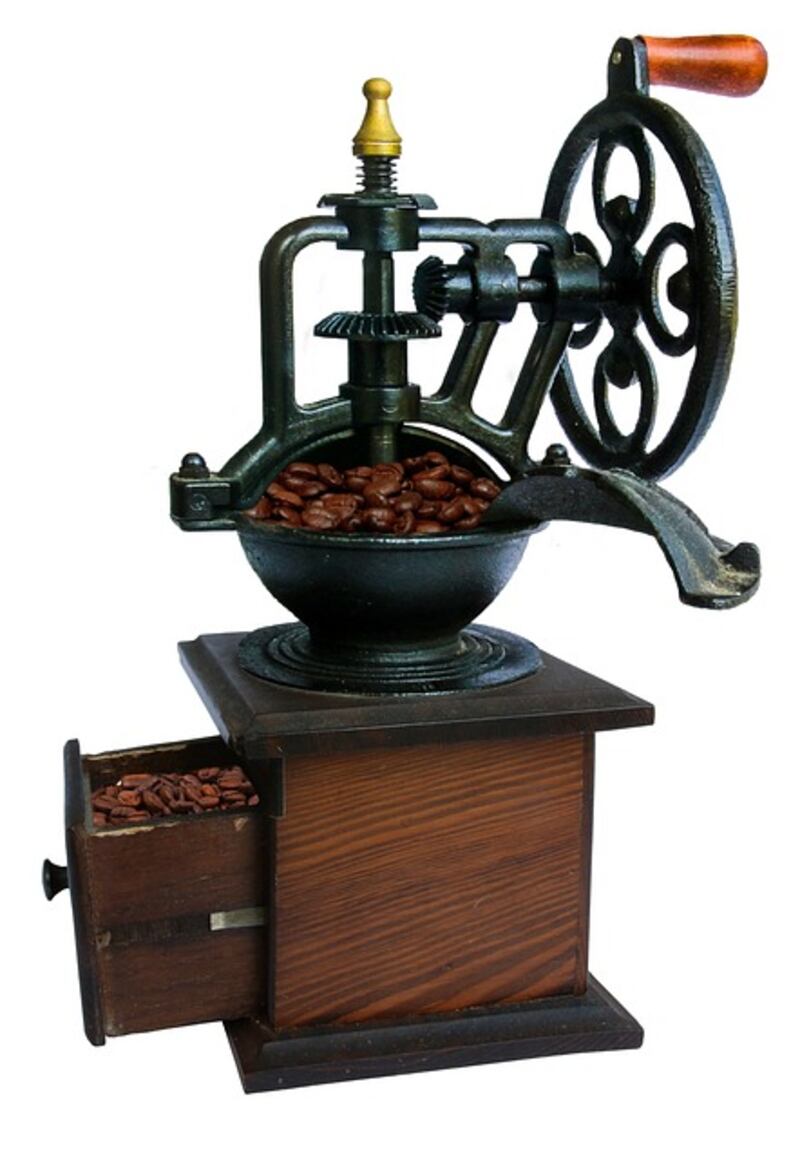Tips for Buying a Coffee Grinder
You probably already know that there are several coffee bean grinders from which to choose the one that is most suited to your needs and kitchen. Most coffee grinders can be broadly classified as blade or burr grinders. Which one should you pick, then?
To begin, it’s worth mentioning that both types of grinder are commercially available in electric and manual varieties. For this article’s sake, we will focus on electrical solutions rather than manual ones, as they are becoming more popular overall as there is a significant added convenience here.
Remember as you read this article that the final decision you make regarding selecting a coffee bean grinder will, in most circumstances, boil down to budget and how seriously you think about coffee.
Now that we know the two sorts of grinders, let’s compare and contrast them.
Sharpening Blades
Blade grinders employ a spinning blade to grind your coffee beans into a fine powder. The general theory behind these mills is that the longer they grind, the finer the powder.
Pros
Costs less than other burr grinders.
Make sure your coffee beans are correctly ground.
Cons
Can’t guarantee a perfectly uniform grind (which can affect the coffee’s flavor).
Some models’ blades can overheat, changing the flavor of your coffee for the worse, especially if you leave it on for longer to get a finer grind.
Grinder Burrs
A burr grinder, sometimes called a mill, is an alternative to the more common blade grinder. Here, a moving wheel and a stationary surface crush the beans. The coarseness of your ground coffee is entirely up to you, determined by the burr’s adjustable settings. Depending on the model, coffee beans can be stored in either a doser or a doserless chamber.
Pros
A burr grinder is the easiest way to guarantee a uniform grind every time.
The grinders and their pre-sets for grinding are simple to operate.
Cons
The price of a burr grinder is often higher than a blade grinder’s.
It may be more challenging to remove buildup from other models.
As you can see, you should consider how much you value the grind quality and the resulting coffee flavor when making your final decision on a coffee grinder. The choice between a blade grinder and a burr grinder comes down to one factor.
Users of blade grinders are more likely to choose a standard, freshly ground cup of coffee. If you want to hone your beans for simple coffee-drinking purposes, there’s no need to spend more money on a burr grinder than necessary.
Remember that although a blade grinder will likely provide a more uneven grind, it will still accomplish its intended purpose. However, the beans you purchase cannot yield the finest task, resulting in an inferior brew. Blade grinder enthusiasts agree that shaking the machine gently at regular intervals can improve the uniformity of your grind by distributing the fragments of cut beans more evenly.
However, if you place a high value on the quality of your coffee and demand repeatable brewing results from your ground beans, you should probably invest in a burr grinder. Coffee connoisseurs appreciate these grinders because they consistently and reliably grind all your coffee beans to the same fineness, resulting in the most excellent possible cup of coffee every time.
Each type of grinder may be found and purchased with relative ease, whether in a local store or online. You can choose among heroes made by Braun, Capresso, Alpina, Mr. Coffee, DeLonghi, Russell Hobbs, KitchenAid, Krups, and Solis, among other well-known coffee machine brands.
If you look, you might be able to locate a more expensive grinder within your budget, as there are often amazing deals and discounts to be discovered. It’s best to compare prices before purchasing a hero rather than buying the first one.
Equally essential is checking out customer reviews to learn about the experiences of others with particular models. After narrowing your search down to a few models, it can be helpful to read user reviews to get an idea of how those specific models performed in real-world situations instead of depending on the manufacturer’s marketing copy. Instead of buying a grinder and then figuring out if it works, you can have a good idea of how it will perform in your home with this information.
Certain red flags should always be raised when reading user reviews. You could, for instance, inquire if other people who have used grinders have discovered that their hero:
Easily impeded by a buildup of debris.
Its workings become clogged with beans.
The coffee becomes bitter from overheating.
It is hassle-free to keep tidy and sanitary.
Produces a fine powder consistently.
It is way too loud.
Static electricity is an issue for him.
Provides a simple method for discarding used coffee grounds.
It is sturdy and won’t break after you use it once or twice.
With the correct information, you should be able to zero down on the burr or blade grinder that best suits your needs.
Carol Finch frequently contributes to Coffee N’ Beans, where she covers topics such as coffee grinders (burr and chop models may be found at http://www.coffee-n-beans.com/1125-burr-grinders.html) and more.
Read also: https://kickapoogold.com/category/electronics/


